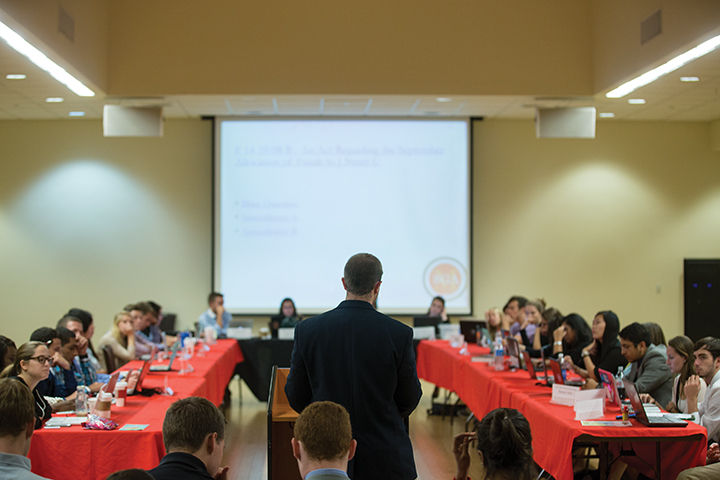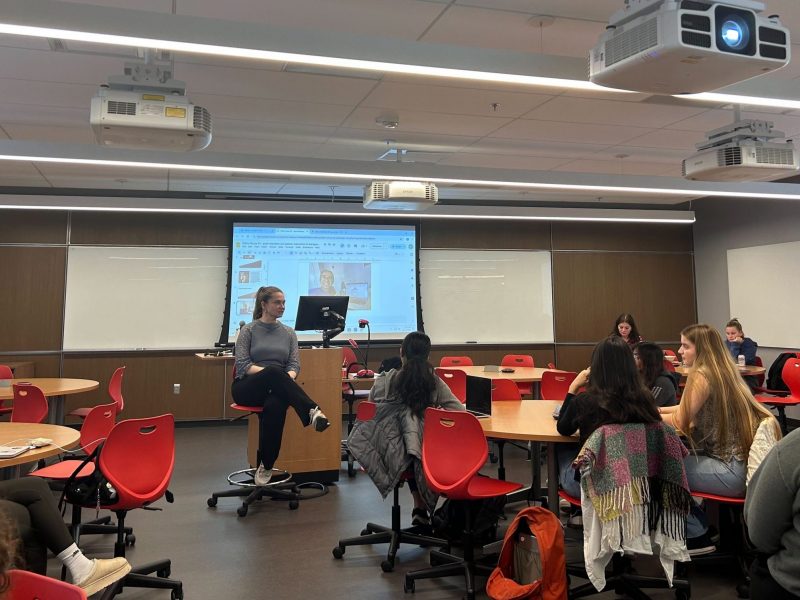
The SGA voted 24-1 on Wednesday in favor of a resolution supporting the University Senate’s proposal to amend the Code of Academic Integrity.
While no major changes to the code are expected, it is a step in the right direction for improving the policy’s functionality and furthering the due process rights of students, said Charmaine Wilson-Jones, Student Government Association academic affairs vice president.
“This is something students are in favor of and is probably one of the issues on-campus that has the potential to impact every single student,” Wilson-Jones said. “We all sign the honor pledge every time we take an exam, and whether you’re guilty or not, anyone can have a claim of academic dishonesty brought against them.”
Possible amendments to the code include the addition of a “disciplinary conference,” which would allow an accused student the option of having a one-on-one meeting with a member of the Office of Student Conduct; measures to speed up the process, such as a shortened time window for appeals; and an expansion of the code’s definition of cheating.
Although the SGA does not have any legislative clout in the decision-making process, Wilson-Jones said she is hopeful that the body’s resolution will help increase the proposal’s merit.
“By saying that not only is the Office of Student Conduct on board with this, but almost the entire SGA, we can give the proposal more teeth,” Wilson-Jones said. “It says this is something that’s good for students, and this is something the representatives of the student body support.”
The senate will likely vote on the proposal this semester, said Andrea Goodwin, student conduct office director. She added that if it passes, the code revisions — the first in about 20 years — would be implemented in the spring.
In the meantime, Wilson-Jones said the SGA plans to lobby various deans, as well as the senate itself, to gain support for the proposal. Two SGA members, Ryan Belcher and Joseph Baier, currently serve on the senate and will vote on it when the time comes.
“In the senate meeting, we’ll be defending the proposal, and talking through any sort of amendments,” said SGA President Patrick Ronk, who plans to speak before the senate on the matter. “If any amendments come up on the senate floor that we think will hurt the proposal negatively or hurt students, we’ll speak out against them.”
In addition to advocating the senate proposal, the SGA is also looking forward to the enactment of one of its recent ideas: immediately assigning students accused of academic dishonesty a specific representative from the Student Legal Aid Office rather than leaving students to seek one out themselves.
“There are a lot of students who don’t even know [a student legal aid representative] is an option,” Wilson-Jones said. “I think that’s really important, because a lot of times with this process, it can be difficult to navigate.”
The SGA initially brought the idea to Goodwin, who said students can expect to see that change implemented in the near future.
“There has to be an agreement between [the Office of Student Conduct] and the Student Defenders Office,” Goodwin said. “We’re in conversation about that right now, and I think we’re in agreement that we could make that happen starting this semester.”



